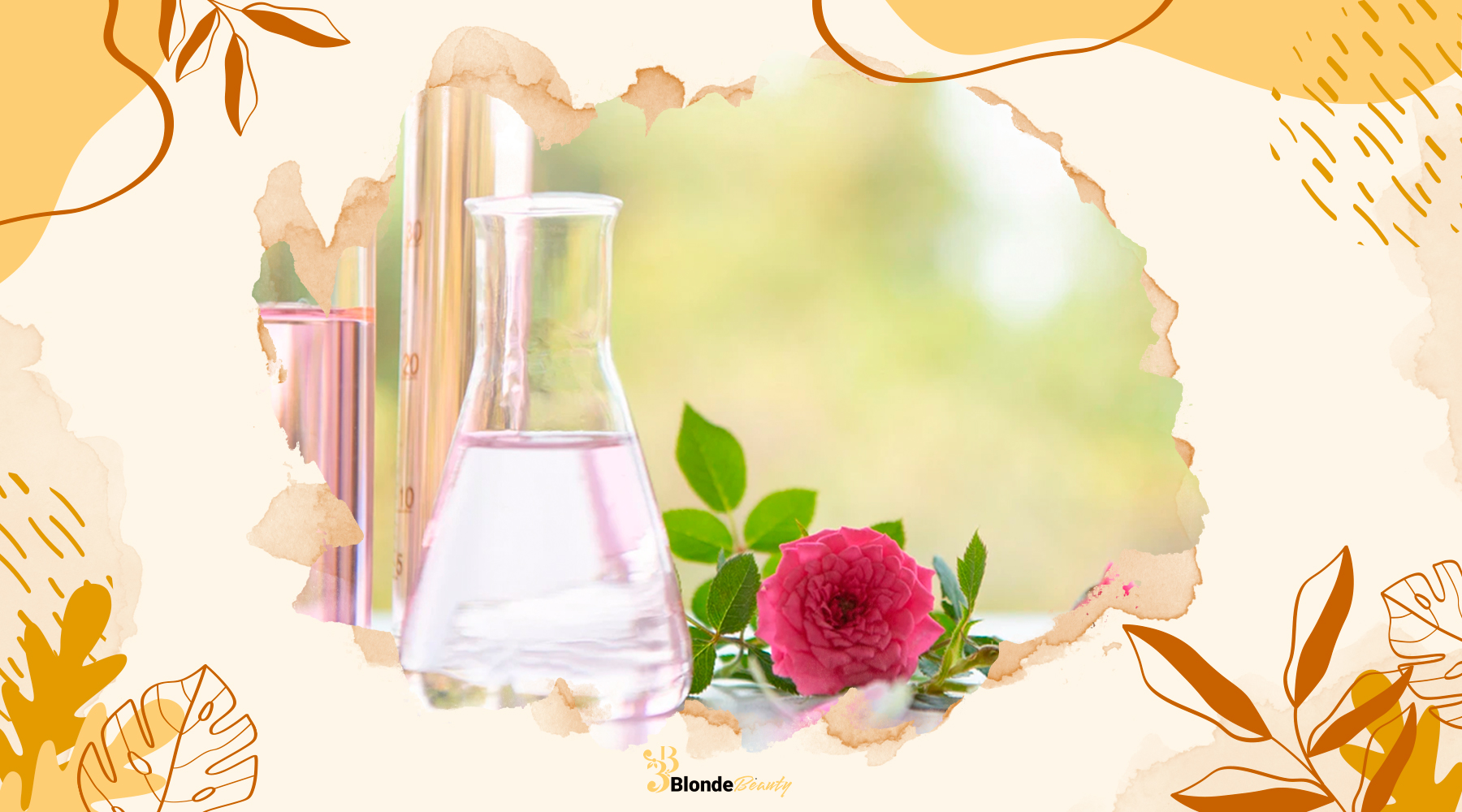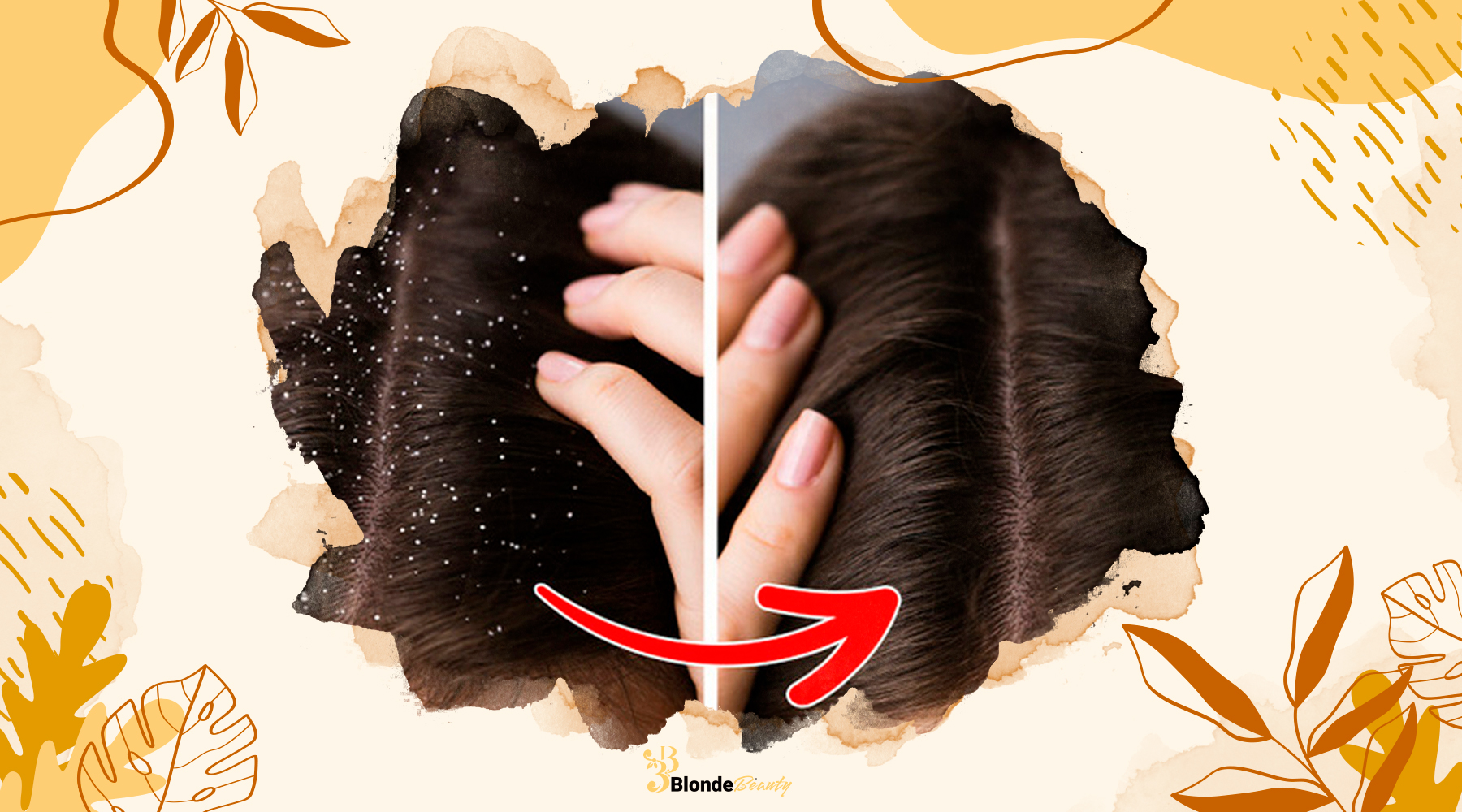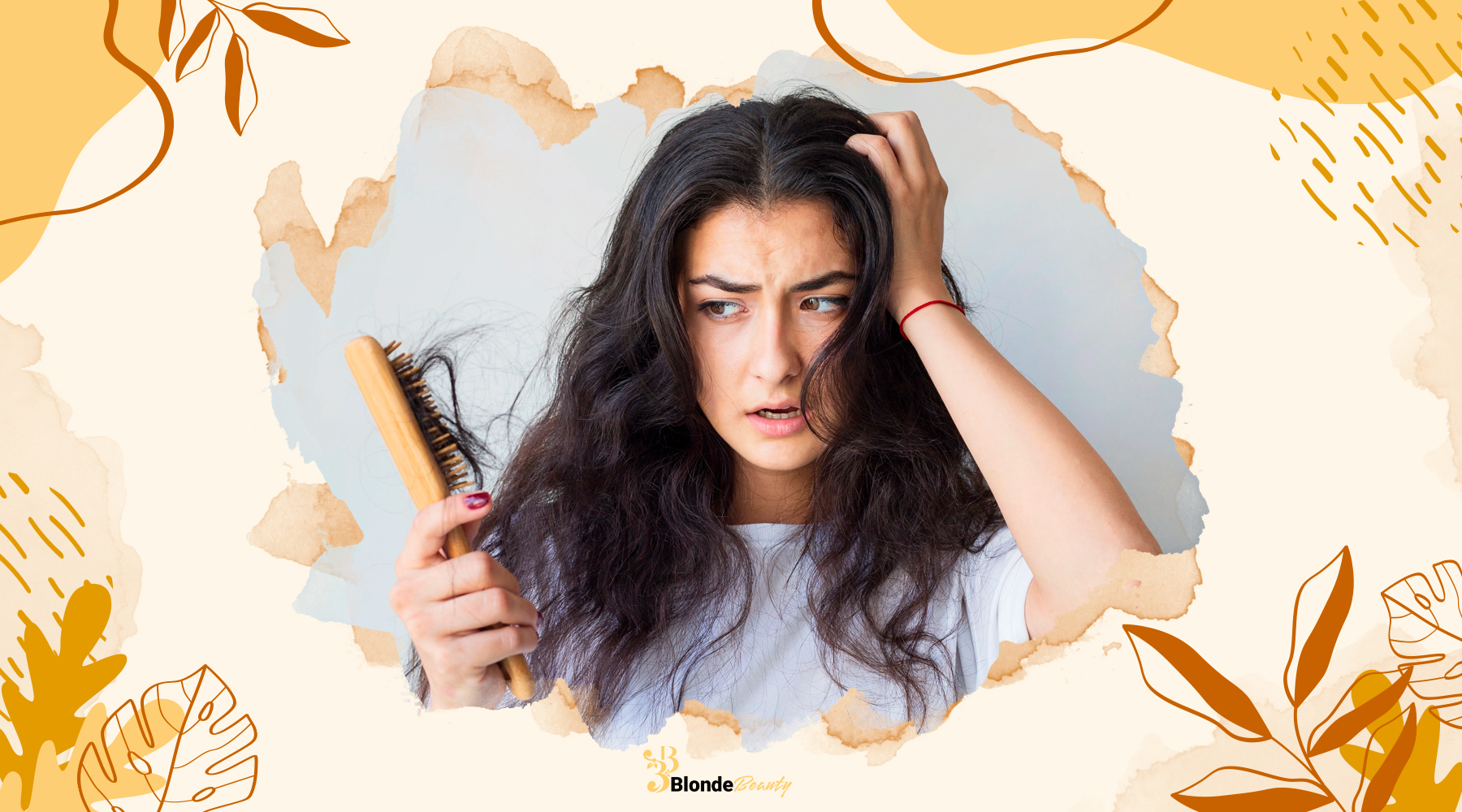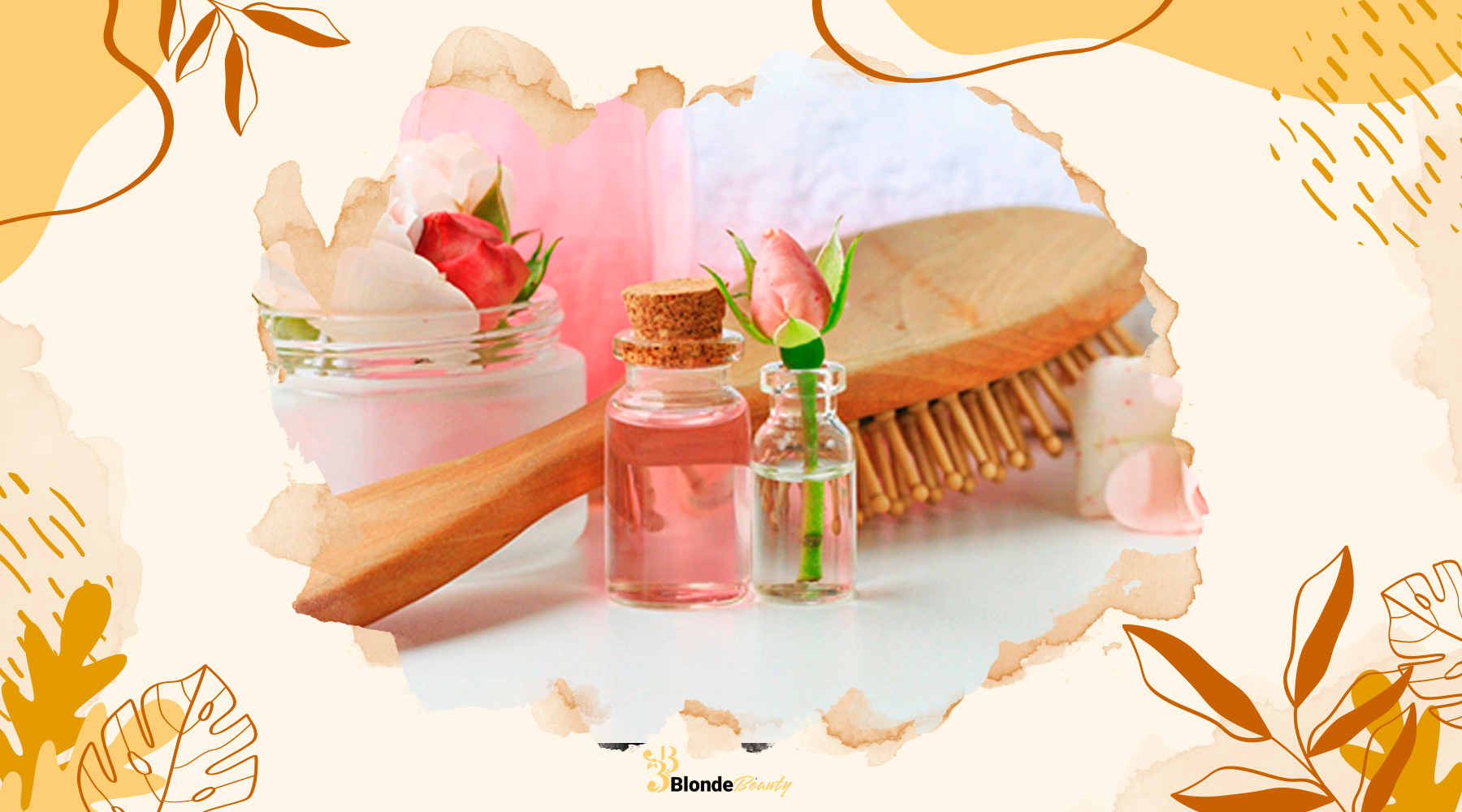In the beauty world, rose water has re-emerged as a timeless secret for hair and skin care. This age-old remedy has been cherished for centuries, and today, we’re delving into its wonders once more, specifically exploring ‘Is Rose Water Good for Hair Growth?’.
In this blog, we’ll explore other recommended uses of rose water for hair care, potential risks to be aware of, and share a simple DIY rose water recipe.
Is Rose Water Good for Hair Growth?
Rose water is highly beneficial for hair care, as highlighted by Lin Chen, the co-founder of the eco-friendly beauty brand Pink Moon. It deeply hydrates and moisturizes hair that is dry and damaged, making it particularly excellent for hair that has been processed or colored.
Furthermore, rose water possesses gentle astringent qualities and boasts anti-inflammatory properties, according to Dr. Marisa Garshick, a board-certified dermatologist at MDCS Dermatology. This makes it an effective treatment for reducing scalp oiliness.
It can provide relief for conditions like dandruff and seborrheic dermatitis, making it a valuable addition to anyone’s hair and scalp care regimen.

Advantages of Rose Water for Natural Hair
Rose water offers a plethora of benefits for both hair and scalp. Known for its mild astringent properties, it effectively curtails excess oil production on the scalp. This is crucial because an oily scalp can paradoxically lead to dandruff and other scalp imbalances.
Moreover, rose water is enriched with vitamins A, B3, C, and E, and is recognized for its anti-inflammatory capabilities. Shari Sperling, DO, highlights how these properties can alleviate scalp conditions such as eczema and psoriasis.
Beyond its medicinal attributes, many people are drawn to rose water for its delightful and refreshing rose scent.
Acts as an Aromatherapy Stress Reducer
Stress significantly contributes to hair loss. Rose oil, a component of rose water, has been demonstrated in studies to mitigate nervous stress and tension.
It is also credited with easing allergies and headaches, adding to its therapeutic profile.
Protection Against Dandruff
By reducing oil production, rose water helps prevent the formation of dandruff.
Dr. Shari Sperling, a dermatology expert, advocates for managing scalp oiliness to combat dandruff, which often stems from excessive oil.

Gentle Scalp Astringent
As an astringent, rose water tightens the scalp’s skin, helping to prevent overproduction of oil and maintaining a clean, balanced scalp environment.
Prevents Hair Loss
A well-maintained scalp is essential for preventing issues related to hair loss. Gretchen Friese, a certified trichologist, emphasizes that rose water’s anti-inflammatory properties foster a healthy scalp, which is vital for minimizing hair loss.

Moisturizes to Combat Frizz
Rose water’s profound hydrating and moisturizing properties combat dryness and can soften hair texture.
Its nourishing effects not only improve hair’s appearance but also bolster overall hair and scalp health.
Anti-inflammatory Properties
The natural antioxidants and anti-inflammatory agents in rose water soothe scalp irritation.
Gretchen Friese notes that it is particularly beneficial for individuals suffering from eczema or psoriasis on the scalp.
Using Rose Water for Hair Care
Rose water is available both as a ready-made solution or can be homemade. When purchasing rose water, opt for a product free from added preservatives like ethanol to ensure natural benefits.
Here are various effective ways to incorporate rose water into your hair care routine:
- Use rose water as a hair rinse post-shampooing, or after both shampooing and conditioning. You can leave it in your hair or choose to rinse it out after several hours or even overnight for deeper hydration.
- Enhance your favorite shampoo or conditioner by adding rose water. This can increase the moisturizing properties of your hair care products.
- Keep a spray bottle filled with rose mist handy to spritz your hair throughout the day. This is an excellent way to reduce frizz and refresh your hair with a pleasant scent.
- For targeted scalp care, apply rose water with cotton swabs directly onto the scalp. This method is beneficial for reducing dandruff and soothing itchiness. Simply massage gently and follow up with your usual shampoo and rinse.

Preparing Rose Water at Home
Creating your own rose water is a straightforward and rewarding process. Begin with half a dozen fragrant roses, choosing varieties known for their scent rather than just their appearance. Ensure the roses are aromatic by giving them a good sniff before purchasing. You’ll also need distilled water to avoid impurities found in tap water.
Follow these steps to make rose water:
- Detach the rose petals from their stems and rinse them gently under warm running water using a colander to remove any dirt or residues.
- Place the cleaned rose petals in a large pot and pour enough distilled water over them to just cover the petals.
- Cover the pot with a lid to trap the steam, which helps extract the essence and fragrance from the petals.
- Simmer the petals on medium heat for approximately 20 minutes, or until the petals have completely lost their color, indicating that their essence has transferred into the water.
- Carefully strain the mixture, removing the rose petals and discarding them.
- Pour the rose water into one large or several smaller glass jars and store in a cool, dark place away from direct sunlight to preserve its freshness and therapeutic properties.
Note: For an enhanced aromatic experience, you can add a few drops of essential oil such as lavender or chamomile to the rose water after it has cooled. This not only boosts the scent but can also increase the soothing properties of your homemade rose water.

Potential Side Effects of Rose Water
Rose water is widely recognized as safe for topical use for most individuals. Being a natural product, it typically exhibits few side effects. Nonetheless, as with any cosmetic or natural remedy, there is a possibility of mild allergic reactions or sensitivities in some users. Notably, rose water should be used with caution near the eyes or on open wounds as it may cause irritation in these sensitive areas.
The majority of users can incorporate rose water into their routines without adverse effects. However, it is vital to exercise caution, particularly for those with known allergies or skin sensitivities.
To reduce the risk of side effects, consider the following precautions:
- Opt for high-quality rose water sourced from reputable providers to ensure purity and safety.
- Conduct a patch test by applying a small amount of rose water to a discreet area of skin to check for any reaction before widespread use.
- Avoid application of rose water near the eyes or on any open wounds to prevent irritation.
Rose water is a valuable addition to hair care practices. Although direct evidence of its efficacy in promoting hair growth is limited, its various benefits can indirectly support healthier hair. Easy to prepare and store, rose water also adds a delightful fragrance to your routine. It can be seamlessly added to various hair care products or used in a spray bottle for convenient, on-the-go application.
Frequency of Rose Water Application on Hair
It is recommended to use rose water on your hair two to three times a week. Increasing the frequency of use may affect the scalp’s pH level, which can lead to imbalances and potential scalp issues.
Notes:
- Consistent but moderate use helps maintain the benefits without disrupting the natural balance of your scalp.
- Monitor your hair and scalp’s response to adjust the frequency if needed.
- Always follow with a gentle shampoo and conditioner to ensure complete care.
Conclusion
Give rose water, the age-old beauty secret, a try for better hair and scalp health. With its moisturizing and pH-balancing properties, rose water offers numerous benefits. Is rose water good for hair growth? Including it in your routine can greatly enhance the overall wellness of various hair types.
Whether you choose to add it to your hair care routine or make your own rose water at home, this natural elixir can be the perfect addition to your hair and scalp care regimen. Experience the revitalizing effects of rose water and see how it can transform your hair care routine.
Don’t forget to check out more blogs from Blonde Beauty for additional tips and insights on hair care.

Laureate Professor Clare Collins
Professor Clare Collins is a leading expert in nutrition and dietetics at the School of Health Sciences, part of the College of Health, Medicine and Wellbeing. Her work is changing the way we think about food and health. She grew up as one of nine children and was the first in her family to finish high school and go to college. This background gave her a strong work ethic and a deep appreciation for seizing opportunities.
As the Director of the Hunter Medical Research Institute’s Food and Nutrition Program and a recipient of three NHMRC Research Fellowships, Professor Collins is making a big difference in public health. She focuses on helping people who are often overlooked, using new technologies like apps and online programs to improve their nutrition and reduce the risk of chronic diseases.
Professor Collins is well-respected and has been recognized as a Fellow in four major health and science organizations. She leads a diverse team of experts, including dietitians, computer scientists, and engineers, working together on global health projects.
Her achievements are impressive. She has received over $29 million in research funding, published more than 450 papers, and helped 35 PhD and Master’s students complete their degrees. She’s also active in sharing her knowledge with the public. She has developed tools like the Australian Eating Survey and the Healthy Eating Quiz, and she often appears in the media to talk about nutrition.
PUBLISHED ARTICLES
- Collins, C. (2019). “The Effect of a Pilot Dietary Intervention on Pain Outcomes in Patients Attending a Tertiary Pain Service.”
- Collins, C. (2022). “Variation in cardiovascular disease risk factors among older adults.”
- Collins, C. (2022). “Evaluation of an online intervention for improving stroke survivors’ health-related quality of life: A randomised controlled trial.”
These articles show Professor Collins’s commitment to understanding how better nutrition can improve health. Her work is important for researchers, doctors, and anyone interested in healthy living.
